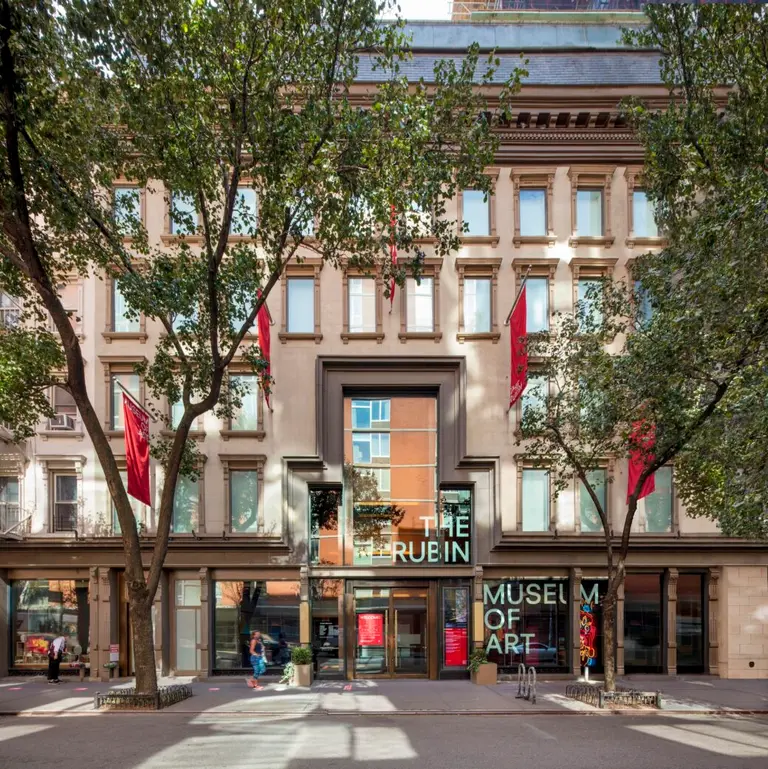NYC Council responds to ‘City of Yes’ with housing plan that goes beyond zoning

Credit: Diane Picchiottino on Unsplash
The New York City Council has released a housing plan as a counter-proposal to Mayor Eric Adams’ “City of Yes” plan. Council Speaker Adrienne Adams last week announced “City for All,” which pairs the zoning changes of the mayor’s plan, currently under review by the Council, with several measures and funding demands to ensure affordability for renters and homeowners.
Council approval is the last hurdle for City of Yes, approved by the City Planning Commission in September in a 10 to 3 vote. With Adams’ indictment last month and his poor approval ratings, the Council is capitalizing on this moment to push for more “holistic solutions.”
“New Yorkers need more housing, but affordability, homeownership opportunities, housing security and stability, and neighborhood investments are equally important to help working- and middle-class residents in our city,” Speaker Adams said.
“In order to ensure everyone in our city has safe and stable housing to continue contributing to the strength of our city and its economy, we must go beyond zoning reforms to address all the unrelenting housing pressures that leave New Yorkers struggling to afford finding or staying in homes.”
The City for All proposal calls for increased funding in the city’s Department of Housing Preservation and Development’s (HPD) five-year capital plan to spur affordable housing development and deepen affordability targets, including creating deeper affordability for households below 30 percent of the area median income.
The Council’s demands include requiring affordability in large transit-oriented and town center developments while calling for additional funding for mass transit and the Department of Environmental Protection. This funding would enhance climate resilience and improve roadways, parks, and other open spaces.
The speaker wants funding for HPD’s HomeFirst Down Payment Assistance Program to support more prospective homebuyers and an increase in funding for HPD’s HomeFix program, which provides financial aid for homeowner repairs.
To preserve affordability, City for All would significantly increase capital funding for repairs in NYCHA’s Section 9 units and for HPD preservation programs, incentivize the return of vacant units, and maintain affordability at Mitchell-Lama developments.
Additionally, the proposal calls for strengthening the CityFHEPS voucher program by expanding access for homeless youth and individuals facing eviction, allowing them to qualify for the vouchers without needing to enter the city’s shelter system.
To protect tenants, City for All would increase funding for the Right to Counsel program, significantly expanding access to legal services that address housing injustices from evictions. It would also restore $25.5 million for the Anti-Harassment Tenant Protection (AHTP) Program to enhance tenant protections.
“New Yorkers across the city are grappling with the impacts of the housing and affordability crisis, which is making it difficult for working-class families to remain in their neighborhoods,” Deputy Speaker Diana Ayala said. “Zoning reform alone cannot meet the full needs of our residents. New Yorkers need a comprehensive set of investments and policies to deliver the housing security we deserve.”
Approved by the City Planning Commission in September, the City of Yes plan is considered to be the mayor’s term-defining project. The proposal aims to address the city’s housing shortage by creating more than 100,000 new homes over the next 15 years through a series of zoning changes.
Proposed changes include allowing three-to-five-story residential developments near public transit, constructing new homes above commercial businesses and on campuses, accessory dwelling units (ADU) like backyard cottages, converting office buildings built before 1990 into homes, legalizing single-room occupancy (SRO) housing, lifting parking mandates, and more.
Other features of the plan include replacing the city’s Voluntary Inclusionary Housing program, the Universal Affordability Preference (UAP), which would allow buildings to be built 20 percent larger if all the additional homes are made permanently affordable.
A final vote on the plan is expected by the end of the year.
RELATED:
Get Insider Updates with Our Newsletter!
Leave a reply
Your email address will not be published.





























we definitely need housing for all, from the lowest and beyond, also we need a lot of truly affordable senior housing, and the better off neighborhoods need to do there part of building much needed truly affordable housing, they also need to start building truly affordable housing by these beautiful water front views, not just more high rent buildings, all incomes deserve to live in a safe, resourceful neighborhoods, not just the higher incomes market rate, so called affordable, ITS WAY PAST TIME TO END NYC SEGREGATED HOUSING POLICY, yes for the truly affordable housing in all neighborhoods for all incomes
What all these plans fail to address are the out of control costs of construction in NYC. Driven by overregulation, a red tape and corruption filled permitting process and absurd applications of the building code, the costs of construction in NYC are multiples of those in other cities across the US. Of course most of these policy decisions are designed to benefit unions – a critical source of campaign financing for most in NY government today.
Housing affordability can not be solved without tackling the high cost of construction through deregulation, or by enabling different, more efficient construction approaches like pre-fabricated and modular housing. These are less expensive $/ft and higher quality – all driven by the manufacture in a more controlled factory setting that enables better resource utilization, less materials waste, better controls and faster timelines. So it is also better for the planet and for the well being of workers who are not subjected to the weather or seasons.